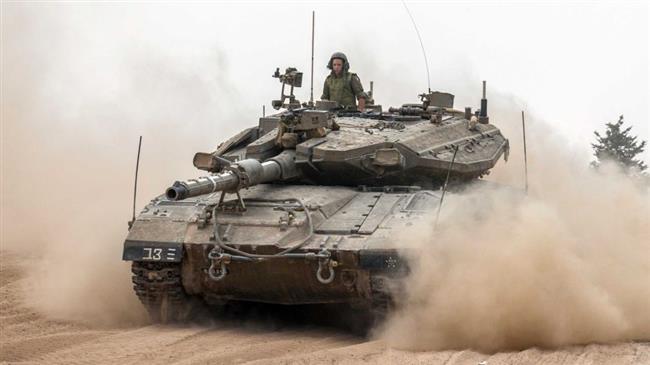
RNA - The Israeli military, in a statement released on Wednesday, asserted that the shelling came after Palestinians detonated a bomb near an Israeli construction vehicle adjacent to the border fence between the Gaza Strip and the occupied Palestinian territories, causing neither injury nor damage.
The statement did not give the location of the targets.
Palestinian media outlets later said the blast occurred east of Gaza City.
The Israeli military frequently bombs the Gaza Strip, with civilians being the main target of such attacks.
Israel has also launched several wars on the Palestinian coastal sliver, the last of which began in early July 2014. The military aggression, which ended on August 26, 2014, killed nearly 2,200 Palestinians. Over 11,100 others were also wounded in the war.
The Gaza Strip has been under an Israeli siege since June 2007. The blockade has caused a decline in the standards of living as well as unprecedented levels of unemployment and unrelenting poverty.
The Israeli regime denies about 1.8 million people in Gaza their basic rights, such as freedom of movement, jobs with proper wages as well as adequate healthcare and education.
Separately, two Palestinians were moderately injured in clashes east of Gaza City on Wednesday evening after Israeli snipers deployed at the border fence in northern Gaza opened fire at them.
Medical sources at Shifa Hospital in Gaza said a Palestinian was admitted to the hospital after he was shot in the leg.
Another Palestinian man sustained injury in the thigh, and was taken to the Indonesian Hospital in Beit Lahia.
The Palestinian rally, dubbed the "Great March of Return," will last until May 15, which coincides with the 70th anniversary of Nakba Day (Day of Catastrophe) on which Israel was created.
Every year on May 15, Palestinians all over the world hold demonstrations to commemorate Nakba Day, which marks the anniversary of the forcible eviction of hundreds of thousands of Palestinians from their homeland by Israelis in 1948.
More than 760,000 Palestinians - now estimated to number nearly five million with their descendants - were driven out of their homes on May 14, 1948.
Since 1948, the Israeli regime has denied Palestinian refugees the right to return, despite UN resolutions and international law that upholds people’s right to return to their homelands.
According to Press TV, this year's Land Day demonstrations appear especially combustible as Palestinian anger is already high over Trump's decision in December 2017 to recognize Jerusalem al-Quds as Israel's "capital."
Israel occupied the West Bank, East Jerusalem al-Quds and parts of Syria’s Golan Heights during the Six-Day War in 1967. It later annexed East Jerusalem al-Quds in a move not recognized by the international community.
Israel is required to withdraw from all the territories seized in the war under UN Security Council Resolution 242, adopted months after the Six-Day War, in November 1967, but the Tel Aviv regime has defied that piece of international law ever since.
847/940